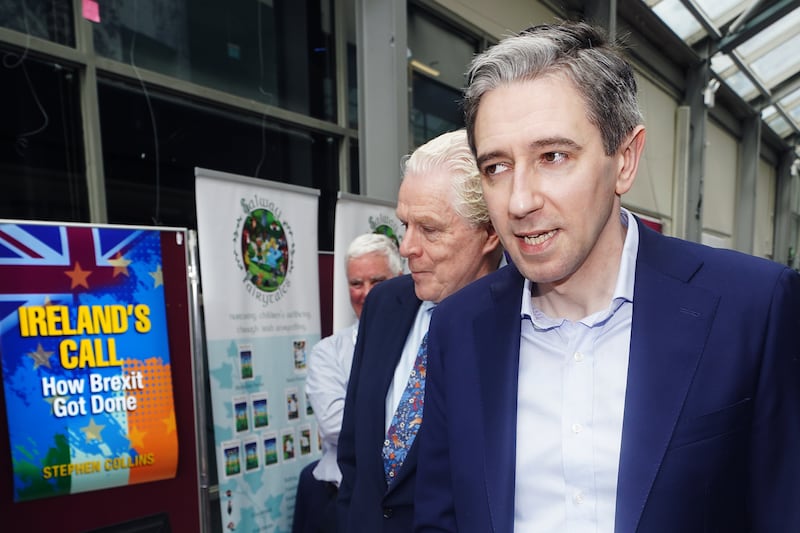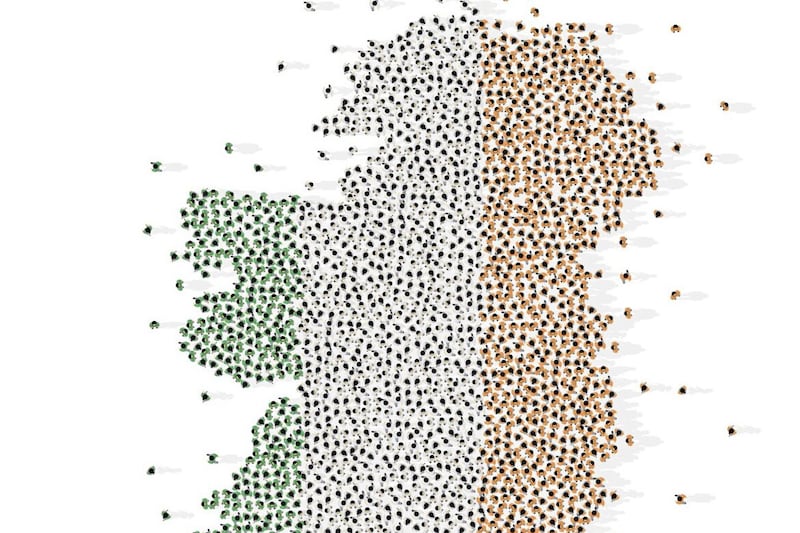The debate around a border poll has been gaining pace in recent months, with a referendum on Irish unity before 2030 now an odds-on shot, according to bookmakers.
But there remains considerable doubt about when one would be called and the conditions needed for the British government to give the go-ahead on a united Ireland referendum.
How likely is a united Ireland?
Taoiseach Leo Varadkar has said he believes a united Ireland will happen in his lifetime. SDLP leader Colum Eastwood believes there should be a border poll in 2030 and that the Irish government is now "moving into the space" of planning for Irish unity.
The odds on a united country happening were cut in May 2023 after Sinn Féin became the largest party in local government following elections in the north. Polling suggests Sinn Féin is similarly set to be the biggest party in the south by a considerable margin after the next Irish general election.
However, there have been concerns expressed that a border poll in the near future would be defeated and a united Ireland would therefore be off the agenda for years.
An opinion poll in 2022 found that support for unity stood at less than one-third.
In 2023 a book by authors in favour of Brexit argued that unionists based in Britain should start agitating for a border poll.
What would a united Ireland look like?
Research from 2021 found that while six out of 10 people in the Republic would vote for a united Ireland, a significant majority would be unwilling to pay more taxes or change the flag of the country.
People in the south are also resistant to dropping Amhrán na bhFiann as the national anthem, with only with only 35 per cent willing to consider changing it.
Support for retaining the Stormont assembly in the event of reunification is greater than opposition, though the idea didn't secure an overall majority among respondents.
Just 23 per cent of those polled said they'd be happy for a united Ireland to rejoin the British commonwealth.
In 2019, a report by Trinity College Dublin academics found a united Ireland would cause the complete collapse of Northern Ireland's economy and cost as much as €30 billion a year, causing a dramatic fall in the standard of living across the entire island.
However, earlier this year Irish News columnist Patricia Mac Bride laid out some of the benefits of a united Ireland, citing factors the Republic enjoys as a country including lower university fees, pensions and higher average life expectancy figures.
Northern referendum
In 2019 the British government's understanding of the Good Friday Agreement was questioned amid claims Irish citizens in the north may not be allowed to vote in a future unity referendum.
Then secretary of state Karen Bradley said that people who consider themselves Irish are not allowed to vote in British referendums.
Solicitor Niall Murphy said: ”It’s unthinkable that all Irish citizens in the north would not get a vote in a border poll bearing in mind that Irish citizens did have a right to vote in the Brexit referendum."
How could an Irish unity referendum take place?
Drafted in the 1998 Good Friday Agreement for the Secretary of State alone to call one, the criteria required for him or her to do so is a little vague.
There are also concerns that, as has happened at the time of Ireland's partition, the goalposts will be moved and that the requirement of '50 per cent, plus one' supporting unification in both Irish jurisdictions, as also conveyed in the Good Friday Agreement, will no longer suffice.
Following Sinn Féin's local election gains, DUP MP Ian Paisley said the conditions for calling a border poll must be “significantly higher than a mood, post-election”.
Mr Paisley argued that despite Sinn Féin becoming the largest party in Stormont and across Northern Ireland councils, support for a united Ireland was still “nowhere near” the threshold required.
The British government has consistently refused to clarify the conditions that would trigger a referendum on Irish unity.
In 2022, Alliance leader Naomi Long said it would "be helpful" for the secretary of state to set out the conditions under which a border poll could take place.
Calls for the poll grew louder in 2023 after nationalism outpolled unionism for the first time in May's elections.






